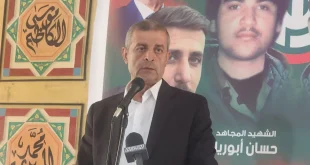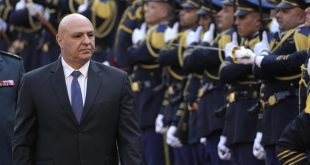الشرق الأوسط على أعتاب تغييرات جذرية: سوريا في قلب المعادلة السياسية الجديدة
في منشور له على منصة “إكس”، قدم الإعلامي سامي كليب قراءة تحليلية معمقة للتطورات الإقليمية والدولية المتسارعة في الشرق الأوسط، مسلطًا الضوء على سوريا كمحور أساسي لهذه التحولات. تناول كليب وضع المحور الإيراني وحلفائه، خاصةً في ظل الضغوط الدولية المتزايدة التي فرضت عليهم اتخاذ مواقف حرجة.
قبول اتفاقيات “غير متوازنة” من قبل المحور الإيراني
أشار كليب إلى قبول حزب الله باتفاق وصفه بـ”المُجحف” لوقف إطلاق النار بوساطة أميركية، مما أدى إلى إنهاء الحرب في غزة. كما لفت إلى أن حركة حماس وافقت أيضًا على اتفاق مع حركة فتح، يُبعدها عن قيادة غزة المستقبلية، ما فعّل دبلوماسية إنهاء الحرب في المنطقة.
سوريا تحت المجهر الدولي
انتقل الحديث إلى الساحة السورية، حيث فُرضت شروط صارمة على النظام السوري، تمهيدًا لعودة سياسة الحصار على إيران. وبحسب كليب، فإن التوترات قد تمتد لتشمل العاصمة دمشق، مما يضع المنطقة أمام مخاطر كبيرة.
وأشار إلى أن اجتماع دول “أستانا” المرتقب في الدوحة بين تركيا، إيران، وروسيا، قد يُحدث تحولًا سياسيًا جديدًا في مسار الحرب السورية.
مواقف دولية متباينة تجاه الحلول السياسية
من وجهة نظر كليب، اعتبرت كل من الولايات المتحدة وتركيا أن الرئيس السوري بشار الأسد بحاجة لقبول حلول سياسية وفتح صفحة جديدة مع المعارضة.
وأضاف أن روسيا، رغم استمرارها بدعم الجيش السوري في مواجهة من تصفهم بـ”الإرهابيين”، قد تفكر ضمنيًا في الضغط نحو تسوية سياسية، خاصةً أنها تواجه تحديات كبيرة بسبب الحرب في أوكرانيا.
ومع ذلك، يظل النظام السوري متمسكًا بموقفه الرافض للحوار مع المعارضة، التي يعتبرها إما تابعة للخارج أو جزءًا من تنظيمات إرهابية، مما يعقد المشهد السياسي.
دور الدول العربية وتركيا في الأزمة السورية
أوضح كليب أن بعض الدول العربية ساعدت النظام السوري بشكل علني أو ضمني، بهدف منع صعود الإخوان المسلمين إلى السلطة في سوريا، مع تطلعها لخروج إيران وحزب الله من المشهد السوري.
أما تركيا، فقد وضعت شروطًا واضحة لتسوية النزاع، تتضمن منع قيام دولة كردية على حدودها وضمان عودة اللاجئين والمعارضين السوريين دون تعرضهم لأي مضايقات.
روسيا بين سوريا وأوكرانيا: مأزق مزدوج
تساءل كليب عن نوايا روسيا الحالية تجاه الملف السوري، في ظل الضغوط الناجمة عن الحرب في أوكرانيا. وأشار إلى أن موسكو، رغم رغبتها في الحفاظ على نفوذها في سوريا، قد تضطر لتقديم تنازلات سياسية بما يتماشى مع التفاهمات المستقبلية مع الإدارة الأميركية الجديدة بقيادة دونالد ترامب.
ويرى كليب أن روسيا قد تبدأ بتعديل استراتيجياتها في سوريا، تماشيًا مع التحولات السياسية العالمية المنتظرة، خاصةً مع تغير الأولويات الأميركية تجاه المنطقة.
الشرق الأوسط على عتبة مرحلة جديدة
أكد كليب أن المحور المكون من إيران، سوريا، وحزب الله يعيش واحدة من أصعب مراحل تاريخه، مع تعاظم الضغوط الإقليمية والدولية. وفي ظل هذه الظروف، قد يجد المحور نفسه مضطرًا للتفاوض من موقع قوة لضمان مصالحه في منطقة تشهد تغييرات حاسمة.
وأشار إلى أن هذه المرحلة تتزامن مع الذكرى السنوية للأزمة السورية التي بدأت في عام 2011، حيث تحولت سوريا إلى ساحة صراع إقليمي ودولي. ومع دخول قوى كبرى مثل روسيا والولايات المتحدة على خط الأزمة، تغيرت التحالفات بشكل كبير، ما يجعل من التطورات الأخيرة نقطة تحول جديدة في مستقبل الشرق الأوسط.
#حزب_الله قَبلَ باتفاق مُجحف وبمراقبة أميركية لوقف إطلاق النار، فتوقّفت الحرب، وحركة #حماس قبلت باتفاق مُجحف مع فتح والذي يبعدها عن مستقبل قيادة غزّة فنشطت دبلوماسية انهاء الحرب. انتقل الأمرُ الآن الى #سورية وهناك الشروط كثيرة ، قبل العودة لحصار #ايران، لذلك فالحرب مفتوحة على كل…
— sami kleib (@samykleyb) December 5, 2024
The Middle East on the Brink of Major Shifts: Syria at the Heart of a New Political Equation
In a post on “X,” journalist Sami Kleib offered an in-depth analysis of the rapidly evolving regional and international developments, emphasizing Syria as a central axis in the Middle East’s shifting dynamics. Kleib highlighted the precarious position of the Iranian axis and its allies amid mounting global pressures.
The Iranian Axis Accepts Unequal Agreements
Kleib pointed out that Hezbollah had accepted an “unfavorable” U.S.-brokered ceasefire agreement, leading to the end of the Gaza war. He also noted Hamas’ agreement with Fatah, distancing itself from Gaza’s future leadership, thereby activating war-ending diplomacy.
Syria Under Global Scrutiny
Attention has shifted to Syria, where stringent conditions have been imposed on the Assad regime ahead of a potential return to sanctions against Iran. Kleib warned that escalating tensions might even threaten Damascus, heightening risks in the region.
The upcoming “Astana” talks in Doha between Turkey, Iran, and Russia are expected to yield new political outcomes that could redefine Syria’s trajectory.
Diverging International Perspectives
Kleib emphasized that both the U.S. and Turkey believe Syrian President Bashar al-Assad must embrace political solutions and engage constructively with the opposition.
Russia, while continuing to support the Syrian Army against “terrorists,” appears to be considering a subtle shift toward political settlement, especially as it faces growing challenges from the Ukraine war.
However, Assad’s rigid stance against dialogue with the opposition, branding them as either foreign-backed or terrorists, remains a significant hurdle to progress.
Arab and Turkish Roles in the Syrian Crisis
Some Arab states, Kleib noted, have supported the Syrian regime overtly or covertly to prevent the Muslim Brotherhood’s resurgence, hoping to see Iran and Hezbollah exit the Syrian arena.
Turkey, on the other hand, has set clear conditions for resolving the conflict, including preventing the establishment of a Kurdish state on its borders and ensuring the safe return of refugees and opposition members without persecution.
Russia’s Dual Predicament in Syria and Ukraine
Kleib raised questions about Russia’s current stance on Syria amid the dual pressures of its military commitments in Ukraine. While Moscow is keen on retaining its influence in Syria, it might be forced to adjust its policies to align with anticipated agreements with the incoming U.S. administration under Donald Trump.
He suggested that Russia may start rethinking its strategies in Syria as it navigates shifting global priorities.
A New Phase for the Middle East
Kleib concluded that the Iranian-Syrian-Hezbollah axis faces unprecedented challenges amid intensifying international and regional pressures. This precarious situation demands negotiations from a position of strength, as the Middle East undergoes transformative changes.
With Syria marking over a decade of conflict, the region remains a crucial battleground for competing global interests. The latest developments signal a potential turning point in shaping the future of the Middle East.
Translated by international scopes team
المصدر: رصد موقع سكوبات عالمية
 International Scopes – سكوبات عالمية إجعل موقعنا خيارك ومصدرك الأنسب للأخبار المحلية والعربية والعالمية على أنواعها بالإضافة الى نشر مجموعة لا بأس بها من الوظائف الشاغرة في لبنان والشرق الأوسط والعالم
International Scopes – سكوبات عالمية إجعل موقعنا خيارك ومصدرك الأنسب للأخبار المحلية والعربية والعالمية على أنواعها بالإضافة الى نشر مجموعة لا بأس بها من الوظائف الشاغرة في لبنان والشرق الأوسط والعالم




